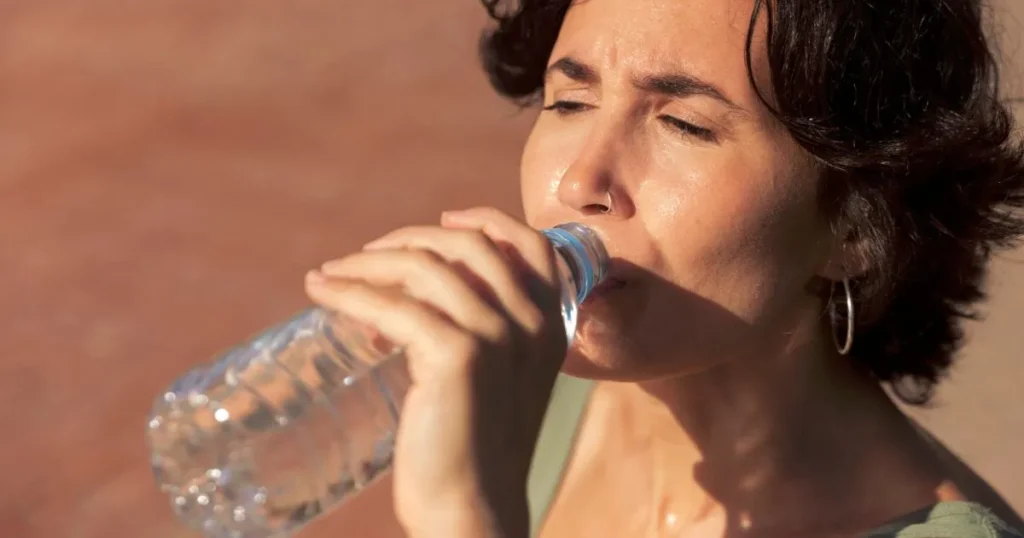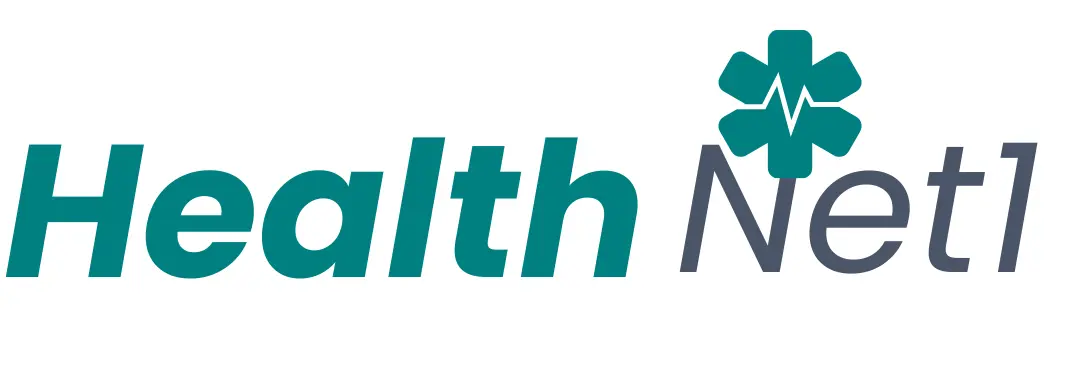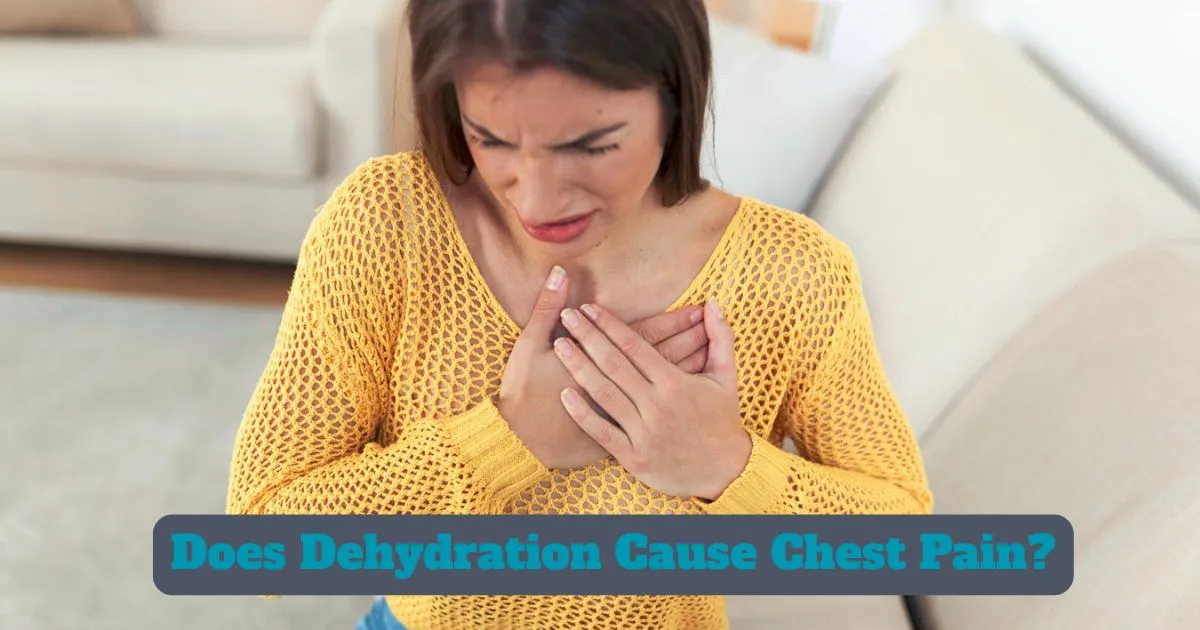Have You Ever Felt a Tightness in Your Chest After Skipping Water?
Imagine this: It’s a scorching day, you’ve barely touched your water bottle, and suddenly there’s a tight, uncomfortable feeling in your chest. Maybe it’s a quick pinch, or maybe it lingers, making you wonder — “Is this serious? Could I be having a heart attack?”
Table of Contents
Before panic takes over, take a deep breath (and a big sip of water). Many people don’t realize that dehydration can indeed play a sneaky role in causing chest discomfort. The human body relies on water for nearly every function, and when you’re running low, your heart and muscles can struggle in surprising ways.
In this guide, you’ll discover exactly how dehydration can cause chest pain, when you should be concerned, and what steps you can take to protect your heart and stay healthy.
Does Dehydration Cause Chest Pain?
Most of us think of dehydration as thirst, dizziness, or dry skin — but chest pain isn’t always the first thing that comes to mind. Yet, the link is very real.
When you’re dehydrated, your body’s fluid balance drops. Blood volume shrinks, your heart works overtime, and muscles (including the ones around your chest) can cramp or spasm.
According to the Cleveland Clinic, dehydration affects the entire cardiovascular system. If you lose too much fluid without replacing it, your blood becomes thicker, making your heart pump harder to move it around. This strain can show up as tightness or mild pain in your chest.
👉 Related: Can Dehydration Cause High Blood Pressure?
How Does Dehydration Trigger Chest Pain?

Chest discomfort linked to dehydration isn’t just one thing. Several factors come together to cause that unsettling squeeze or cramp. Here’s a breakdown of the most common ways dehydration can mess with your chest.
1️⃣ Reduced Blood Volume Strains Your Heart
Water makes up about 60% of your body, including a big portion of your blood. When you lose fluid through sweat, heat, or even mild illness, your blood volume can drop.
With less blood to pump, your heart beats faster to keep enough oxygen flowing. This extra workload can feel like palpitations or mild chest tightness, especially if you’re exercising or standing in the sun too long.
Sources: American Heart Association, Mayo Clinic
2️⃣ Electrolyte Imbalances Can Cause Muscle Spasms
When you sweat or forget to drink water, you don’t just lose H₂O — you lose minerals like sodium, potassium, and magnesium.
Your muscles (including your chest wall muscles) rely on these electrolytes to contract smoothly. Without enough, they can spasm or cramp. That sudden sharp pinch under your ribs or around your sternum? It could be your intercostal muscles complaining about your low fluid intake.
Tip: If you’ve been working out or sweating heavily, plain water might not be enough. Replenish lost electrolytes with balanced sports drinks or foods like bananas and leafy greens.
Source: National Institutes of Health (NIH)
3️⃣ Dehydration Makes Your Heart Beat Faster
Have you ever noticed your pulse racing when you’re parched? Dehydration thickens your blood, which makes your heart pump harder to push it through your veins and arteries.
This can sometimes feel like a flutter in your chest or a mild squeezing sensation. While usually harmless, if it persists even after you hydrate, it’s smart to check with your doctor.
👉 Related: Does Pain Cause High Blood Pressure?
4️⃣ Dehydration Can Worsen Acid Reflux
Not all chest pain is cardiac or muscular. Sometimes, it’s your digestive system complaining. When you’re dehydrated, your body produces less saliva — your natural acid neutralizer.
This can worsen acid reflux or heartburn, both of which can mimic chest pain. If you notice a burning feeling that creeps up your chest, especially after a meal, dehydration might be playing a role.
Sources: Mayo Clinic, WebMD
5️⃣ Anxiety and Shallow Breathing
Ever felt jittery and short of breath when you’re very thirsty? Dehydration can ramp up stress hormones like cortisol. When you’re tense, your breathing may become shallow and rapid, leading to tightness in your chest muscles.
While this type of discomfort usually eases with deep breathing and hydration, it can feel very real and scary in the moment.
When Should You Worry About Chest Pain?
Here’s the truth: Mild chest discomfort that improves with fluids is often harmless. But never gamble with your heart.
If your chest pain is severe, comes with other worrying signs, or doesn’t go away with hydration, it could signal a real medical emergency like a heart attack.
Red Flags:
- Pain spreads to your arm, jaw, or back
- You feel sweaty, lightheaded, or nauseous
- There’s shortness of breath, confusion, or fainting
Quick Comparison Table
| Dehydration-Related Chest Pain | Heart Attack Chest Pain |
| Often sharp, cramp-like | Pressure, squeezing, or fullness |
| Improves after drinking fluids | Worsens with activity or rest |
| Linked to heat, sweat, or exercise | Can happen anytime |
| Short-lived, mild dizziness | Severe dizziness, shortness of breath |
👉 Related: Can Being Sick Cause High Blood Pressure?
How to Avoid Chest Pain From Dehydration
The good news? Preventing dehydration is simple — but easy to forget in a busy day.
Stay Ahead of Thirst
- Aim for at least 8 glasses (2 liters) of water daily.
- Increase your intake in hot weather or during exercise.
- Sip small amounts regularly instead of gulping down a lot at once.
Eat Your Water
Not all fluids have to come from a bottle. Plenty of foods help you stay hydrated too:
- Cucumbers
- Watermelon
- Strawberries
- Celery
- Oranges
These add natural electrolytes and extra fiber, too.
Replace Electrolytes if Needed
If you’re working out hard or sweating a lot, consider adding an electrolyte drink (low-sugar options are best) to balance sodium and potassium levels.
Listen to Your Body
Don’t ignore early signs of dehydration:
- Dry mouth
- Dark urine
- Headache
- Fatigue
Rehydrate early to avoid bigger problems later.
👉 Related: Does High Cholesterol Make You Tired?
When to See a Doctor
If your chest pain doesn’t ease up after drinking fluids and resting, don’t brush it off. Other hidden health conditions could be involved, like:
- High blood pressure
- High cholesterol
- Heart disease
- Sugar level imbalances
👉 Learn more: Understanding Blood and Sugar Levels
Always follow up with a trusted healthcare professional if something feels “off.”
FAQs About Dehydration and Chest Pain
Does mild dehydration really cause chest pain?
Yes, for some people, dehydration can trigger mild chest discomfort, often through muscle spasms, faster heart rate, or acid reflux. Always rule out serious causes if the pain is new or severe.
Can dehydration mimic a heart attack?
It can mimic mild symptoms like chest tightness or a fast heartbeat. But if you have crushing pain or it radiates to your arm or jaw, seek emergency care.
How long does it take for chest pain from dehydration to go away?
Usually, mild discomfort eases within 30–60 minutes after rehydrating. If it doesn’t, check with a doctor.
Is dehydration-related chest pain common?
It’s not the most typical symptom, but it does happen, especially in hot climates or during intense workouts without enough fluid intake.
Final Thoughts: Take Care of Your Heart, Stay Hydrated
You might be surprised by how much staying hydrated can protect your heart, muscles, and overall energy. While chest pain linked to dehydration is usually nothing to panic about, your body’s signals should never be ignored.
Drink enough water, balance your electrolytes, listen when your body says, “Hey, I’m thirsty!” — and never hesitate to get medical help if chest pain feels serious.
✅ Your Next Step
Want to keep your health in check?
Explore more:
Stay informed. Stay hydrated. Stay safe.
Disclaimer: This content is for informational purposes only and does not replace medical advice. Always consult with your doctor for personalized guidance.

